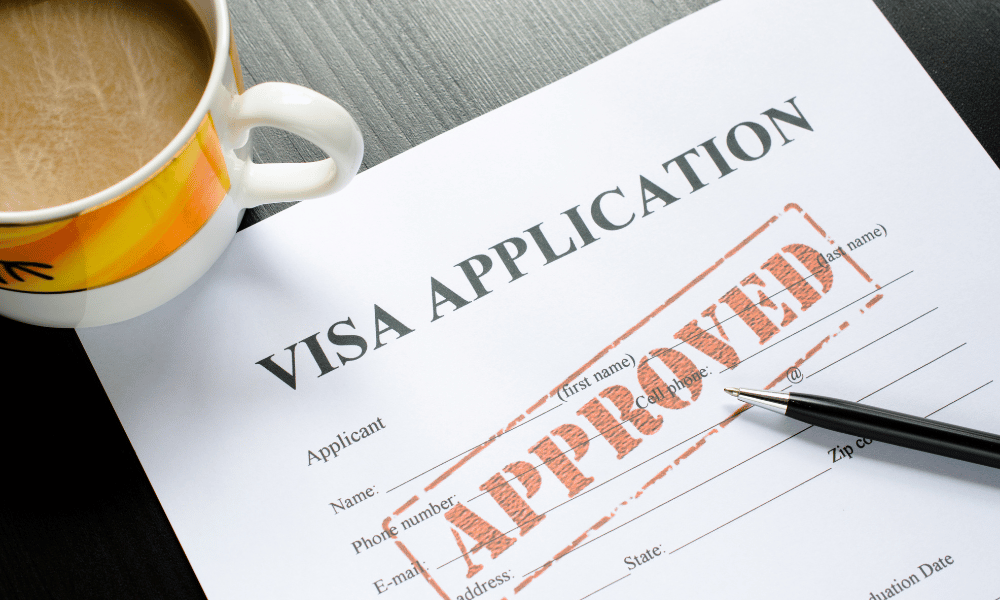Moving to Australia for Work: The Essential Guide to Jobs and Visas

by Hayley
Planning a career move abroad is exciting, but relocating all the way from the UK to Australia can feel like a big step. With its thriving economy, outdoor lifestyle, and English-speaking culture, Australia is one of the most popular destinations for UK professionals looking to combine work opportunities with a better quality of life.
Before you can start your new role down under, it’s important to understand how the process works – from choosing the right visa to navigating Australia’s job market. Whether you’re applying for a Skilled Migration visa, securing employer sponsorship, or considering a Working Holiday visa, having the right information will help you make confident decisions and avoid unnecessary delays.
In this essential guide, we’ll cover the key visa options, job search strategies, and the legal and financial points you need to know as a UK expat moving to Australia. And when the time comes to make your move, Simpsons International Removals can take care of the practical side – from packing and shipping your belongings to handling customs clearance and delivery to your new home – so you can focus on settling into your new career.
1. Understanding Australian Work Visas

Navigating the world of Australian visas can be daunting, but understanding your options is the first step toward a successful move. Several types of work visas are available for UK citizens, including employer-sponsored and independent visas. The main categories for work visas include the Skilled Migration Visa, Employer Nomination Scheme Visa, and the Working Holiday Visa. Each visa type has specific eligibility requirements, which can range from minimal for short-term visas to stricter for long-term visas.
The type of visa you apply for will depend on your skills, the nature of your work, and other factors such as age and financial stability. The Skilled Occupation List (SOL), associated with the Australian Skilled Migration Program, indicates eligible occupations. The Temporary Skill Shortage visa permits foreign workers to take on roles that require an appropriate visa. This is specifically for positions that cannot be filled by Australian citizens.
Processing times can vary significantly, with longer-term visas sometimes taking up to two years. Understanding these visa options and their requirements is crucial for anyone planning to work in Australia. Let’s delve deeper into the specifics of the most common Australian work visas.
Skilled Migration Visa
The Skilled Migration Visa is designed to fill skill gaps in the Australian labour market by attracting highly skilled workers. The first step in applying for this visa is to submit an Expression of Interest (EOI) through the SkillSelect program. This program allows you to showcase your skills and express your desire to migrate to Australia. If your EOI is successful, you may be invited to apply for the skilled independent visa and the skilled visa.
This visa category is particularly appealing because it offers a pathway to permanent residency, allowing skilled workers to live and work in Australia indefinitely. Ensure your occupation is listed on the relevant Skilled Occupation List and meet all eligibility criteria before applying.
Employer Nomination Scheme Visa
The Employer Nomination Scheme Visa is for individuals who have secured employment with a sponsoring employer in Australia and wish to obtain permanent residency. This visa includes three subcategories: Direct Entry stream, Labour Agreement stream, and Temporary Residence Transition stream. Each subcategory has its own set of requirements, but all aim to facilitate the transition of skilled workers into the Australian job market.
To qualify for this visa, you must meet specific eligibility criteria and have an Australian employer willing to sponsor you. This pathway is ideal for those who have already established connections with Australian employers and are looking for long-term employment opportunities.
Working Holiday Visa Subclass 417
The Working Holiday Visa Subclass 417 is a fantastic option for young adults looking to travel and work in Australia for an extended period. Key features include:
- Allows holders to stay in Australia for up to three years
- Permits working for up to six months with any one employer
- The eligible age range is between 18 and 35 years
- The Australian working holiday visa enables these opportunities.
This makes it an excellent choice for young adventurers.
Applicants must prove they have enough funds to support themselves during their stay. The processing time for this visa application can take up to six weeks, although some services can expedite the process to as little as 2-3 days.
Popular job types for Working Holiday Visa holders include positions in hospitality, farm work, retail, and temporary work, au pair roles.
2. Preparing Your Documentation
Before you can start your new life down under, you need to ensure all your documentation is in order. This includes:
- Having a valid passport (valid for at least six months when travelling to Australia)
- Obtaining a suitable visa
- Preparing other essential documents
- Having a valid email address is crucial for various processes, including visa applications.
Once in Australia, you’ll need to set up an Australian bank account, obtain a Tax File Number (TFN), and secure health insurance. These are critical steps to ensure you can legally work and manage your finances efficiently while living in Australia. Let’s explore each of these requirements in more detail.
Australian Bank Account
An Australian bank account is essential for receiving your salary and managing your finances. Setting up an account is straightforward and can often be done online or in person at a local bank branch.
Having a bank account in Australia will also make it easier to pay for everyday expenses and transfer money back home if needed.
Tax File Number (TFN)
A Tax File Number (TFN) is crucial for anyone working in Australia, as it ensures you are taxed correctly on your income. Applying for a TFN is a simple process that can be done online or via a paper application.
Apply for your TFN as soon as you arrive in Australia.
Health Insurance
Health insurance is a vital consideration for UK citizens moving to Australia. Several options are available, including private health insurance and overseas student health covers. Depending on your visa and residency status, you may also be eligible for coverage under Australia’s Medicare system.
Ensuring you have adequate health coverage will provide peace of mind and access to necessary healthcare services.
3. Job Search Strategies
Finding a job in Australia requires a strategic approach, as a significant share of opportunities are filled through networking, referrals, or internal hires rather than being publicly advertised. Effective job search strategies include:
- Utilising job portals
- Networking
- Sending speculative applications, being proactive, and open to various job roles can significantly increase your chances of securing employment.
Networking is statistically the most effective method for job searching, even in a remote context. Attending job workshops and connecting with recruitment agencies can also provide valuable support and insights into the Australian job market.
Remember to tailor your CV and cover letter to highlight relevant skills and experiences that align with job descriptions.
Popular Job Portals
Utilising job search platforms is crucial for effectively finding employment in Australia. Major job search websites include:
- Seek
- Indeed
- LinkedIn.
These platforms offer a diverse range of roles across various skill sets and enhance your chances of finding a suitable position in the competitive Australian job market.
Networking and Recruitment Agencies
Networking and using recruitment agencies are vital for securing employment in Australia. Employment service providers can connect you with job vacancies, assist with visa applications, and help you register for a Tax File Number.
These providers specialise in connecting skilled workers with job opportunities across metropolitan cities and regions, which is what most employers seek.
Speculative Applications
Speculative applications can significantly enhance your job search success. These are job applications sent to employers who may not have advertised current job openings.
Tailor your approach to each employer, showcasing how your skills align with their business objectives.
4. High-Demand Skills and Industries
Australia’s job market is diverse, with high demand for skilled workers in several key sectors. The Skills Priority List highlights various skills shortages across sectors. Key sectors of employment include:
- Technology
- Healthcare
- Trades
- Construction Cities offering the best job opportunities for recent graduates include:
- Sydney
- Melbourne
- Perth
Skilled workers might have to relocate to areas where their expertise is in high demand. This movement can help them secure job opportunities. Let’s explore some of the high-demand industries in more detail.
Technology and Cybersecurity
The demand for cybersecurity professionals is growing as organisations address rising cyber threats and compliance requirements. Australia’s technology sector is also expanding, creating a need for skilled individuals in cloud computing and FinTech.
This sector offers excellent opportunities for those with expertise in these areas.
Healthcare and Nursing

The healthcare sector in Australia is experiencing a significant increase in demand for skilled workers due to demographic shifts and governmental investment. Nursing professionals are particularly in high demand, driven by an ageing population and the retirement of existing staff.
This trend indicates a promising career outlook for healthcare professionals in Australia.
Trades and Construction
Australia needs skilled tradespeople to support infrastructure development amidst population growth. Construction workers are crucial for addressing housing shortages and urban development challenges. This sector offers stable employment opportunities for skilled tradespeople.
5. Adapting to the Australian Job Market

Adapting to the Australian job market requires tailoring your applications to highlight relevant skills and experiences. Understanding the local work culture and expectations is also essential.
Job seekers in Australia are expected to be proactive and well-prepared for the application process.
Resume and Cover Letter Tips
Customise each application to increase your chances of getting a job. This approach makes your submissions more appealing. When preparing your resume, consider the following tips:
- Keep it concise, ideally fitting within one to two pages.
- Include a professional summary at the beginning to provide a snapshot of your skills and experiences.
- Utilise action verbs.
- Include quantifiable achievements to make your resume descriptions more impactful.
Interview Process
In Australia, interviews often start with general questions about the candidate’s experience before moving to role-specific inquiries. Prepare by practising common interview questions and understanding the company’s culture and values.
This will help you stand out during the interview process.
Recognising UK Qualifications
UK qualifications are generally well-recognised in Australia, especially in sectors where the education systems align. Check with potential employers if you are unsure about the recognition of your qualifications.
This will give you a better chance of earning money in the job application process.
6. Legal and Financial Considerations
Understanding the legal and financial landscape of Australia is crucial for anyone planning to work there. Key points include:
- Knowing your employment rights
- Understanding the minimum wage
- Being aware of the tax system and superannuation requirements
- Applying for a Tax File Number (TFN) before starting any employment as is vital for tax purposes
- UK nationals are encouraged to secure private health insurance since Australia’s public healthcare system may not cover all necessary services for migrants.
It’s also important to consider the additional costs associated with living in Australia, such as utilities and healthcare. Let’s delve into the specifics of employment rights, salary expectations, and tax obligations in Australia.
Employment Rights and Obligations
Workers in Australia, including visa holders, are entitled to minimum employment rights under the National Employment Standards (NES). These rights include maximum work hours, various leave entitlements, and public holidays provisions. Employers must pay migrant workers at least the market salary rate and cannot offer less favourable terms than those for Australian citizens in equivalent roles.
Discrimination based on personal attributes such as race, gender, and disability is prohibited in the workplace under Australian law.
Minimum Wage and Salary Expectations
As of the 1st of July 2025, the minimum wage in Australia is set at $24.10 per hour. Workers are also entitled to a minimum of four weeks’ annual leave each year.
Australia’s minimum wage is relatively high compared to other countries, making it an attractive destination for workers seeking better pay and conditions.
Taxes and Superannuation
Non-residents in Australia pay a tax rate that can reach up to 32.5% on their income. Additionally, non-residents are required to make compulsory superannuation deductions from their income.
Understanding these tax obligations and the superannuation system is essential for managing your finances while working in Australia.
7. Living in Australia
Living in Australia offers a unique blend of vibrant city life and stunning natural landscapes. From the bustling streets of Sydney to the serene beaches of the Gold Coast, there’s something for everyone. However, it’s important to be prepared for the practical aspects of living in a new country, including finding accommodation, managing the cost of living, and adapting to a new culture.
Transferring UK pensions to an Australian superannuation can optimise tax benefits since withdrawals are often tax-free under certain conditions. Managing currency risk is also crucial as the value of the Pound has significantly dropped against the Australian Dollar over the years.
Finding Accommodation
Using platforms like Domain or Realestate.com.au can help newcomers find available listings. Renting can be done through real estate agents or directly from landlords, often requiring a security deposit equivalent to four weeks’ rent.
Managed student accommodation usually includes utilities within the rental price, making it a convenient option for students.
Cost of Living
In major cities like Sydney, rent for a one-bedroom apartment in the city centre can range from AUD 2,500 to AUD 3,500 per month. For more affordable housing options, cities like Adelaide or Hobart offer similar apartments for AUD 1,200 to AUD 1,800 per month.
A single person can expect to spend around AUD 80 to AUD 150 weekly on groceries. Dining at casual restaurants typically costs between AUD 20 and AUD 30.
Cultural Adaptation
Adapting to Australia’s work culture is crucial for a smooth transition. The work environment may differ from the UK, so it’s important to be aware of these differences and adjust accordingly.
Tips for fitting in include being open to new experiences, respecting local customs, and building relationships with colleagues.
Summary
Moving to Australia for work is an exciting step that can open the door to new career opportunities and a completely different lifestyle. With the proper visa, careful preparation, and a good understanding of the job market, you’ll be well placed to make a successful transition and start building your future down under.
Of course, securing the job is only part of the journey – the practical side of moving your life overseas is just as important. At Simpsons International Removals, we’ve helped thousands of UK professionals and families relocate to Australia with ease. Whether you’re moving a few boxes or a full household, our door-to-door service covers everything from expert packing and shipping to customs clearance and safe delivery to your new home. With options for both part load and dedicated removals, we can provide a cost-effective service tailored to your needs.
If you’re ready to take the next step, why not get a free online quote today? You can also explore our detailed Removals to Australia Guide for practical advice and step-by-step support to make your relocation as smooth and stress-free as possible.
Recommended Posts

The Benefits Of Moving to Australia: How It Can Change Your Life For The Better
Friday, 19th September 2025

Top Tips for Effortless Driving in Australia – A Comprehensive Guide
Thursday, 24th July 2025

Top 19 Family-Friendly Activities in Australia Your Kids Will Love
Wednesday, 11th June 2025


